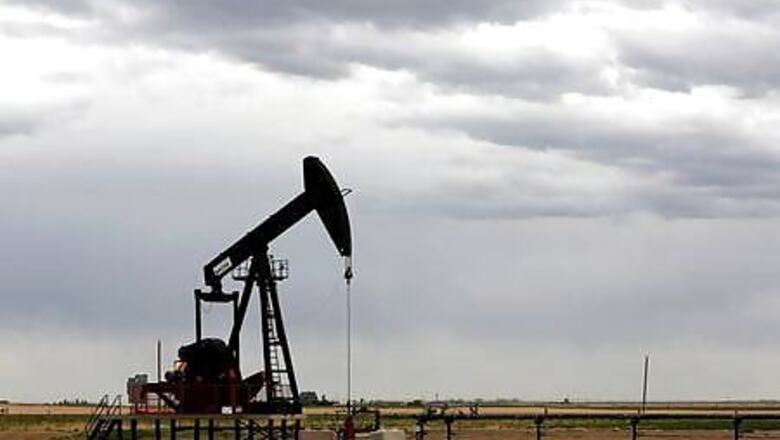
views
LONDON Oil fell on Thursday after Reuters reported OPEC+ needed to address daily oversupply of more than 2 million barrels, and the number of U.S. unemployment benefit claims rose unexpectedly, signalling a slow economic recovery.
Brent crude fell $1.24, or 2.7%, to $44.13 a barrel at 1350 GMT, and West Texas Intermediate (WTI) was down $1.31, or 3%, at $41.62 a barrel.
“While oil-market fundamentals may have started to normalise, much of the progress comes from the supply side, while demand continues to disappoint,” said Emily Ashford, energy analyst at Standard Chartered Bank.
A firmer U.S. dollar, which makes oil more expensive for holders of other currencies, also put pressure on prices, analysts said, leaving them stuck in a narrow trading range.
Oil prices have been rangebound since mid-June, with Brent trading from $40 to $46 per barrel and WTI between $37 and $43.
The Organization of the Petroleum Exporting Countries and its allies, known an OPEC+, said on Wednesday the pace of the oil market recovery appeared to be slower than anticipated with growing risks of a prolonged second wave of the pandemic.
Prices came under renewed pressure after Reuters reported that some OPEC+ members would need to cut output by an extra 2.31 million barrels per day (bpd) to make up for recent oversupply.
Markets also turned sour as the number of new U.S. claims for unemployment benefits rose back above 1 million last week.
The setback came a day after several U.S. Fed members said additional monetary policy easing may be needed because a rebound in employment was already slowing.
“All roads in global and regional economies lead to the containment of the virus and the end of these roads is not in sight yet,” said oil broker PVM’s Tamas Varga.
The U.S. Energy Information Administration said on Wednesday U.S. fuel demand fell by more than 2 million bpd to 17.2 million bpd in terms of product supplied.
Overall fuel demand in the last four weeks is down 14% from year-ago levels. As the summer driving season comes to a close, fuel demand tends to decline.
However, stockpiles of crude in the United States fell for a fourth straight week, even as net imports rose, the EIA said.
Disclaimer: This post has been auto-published from an agency feed without any modifications to the text and has not been reviewed by an editor




















Comments
0 comment